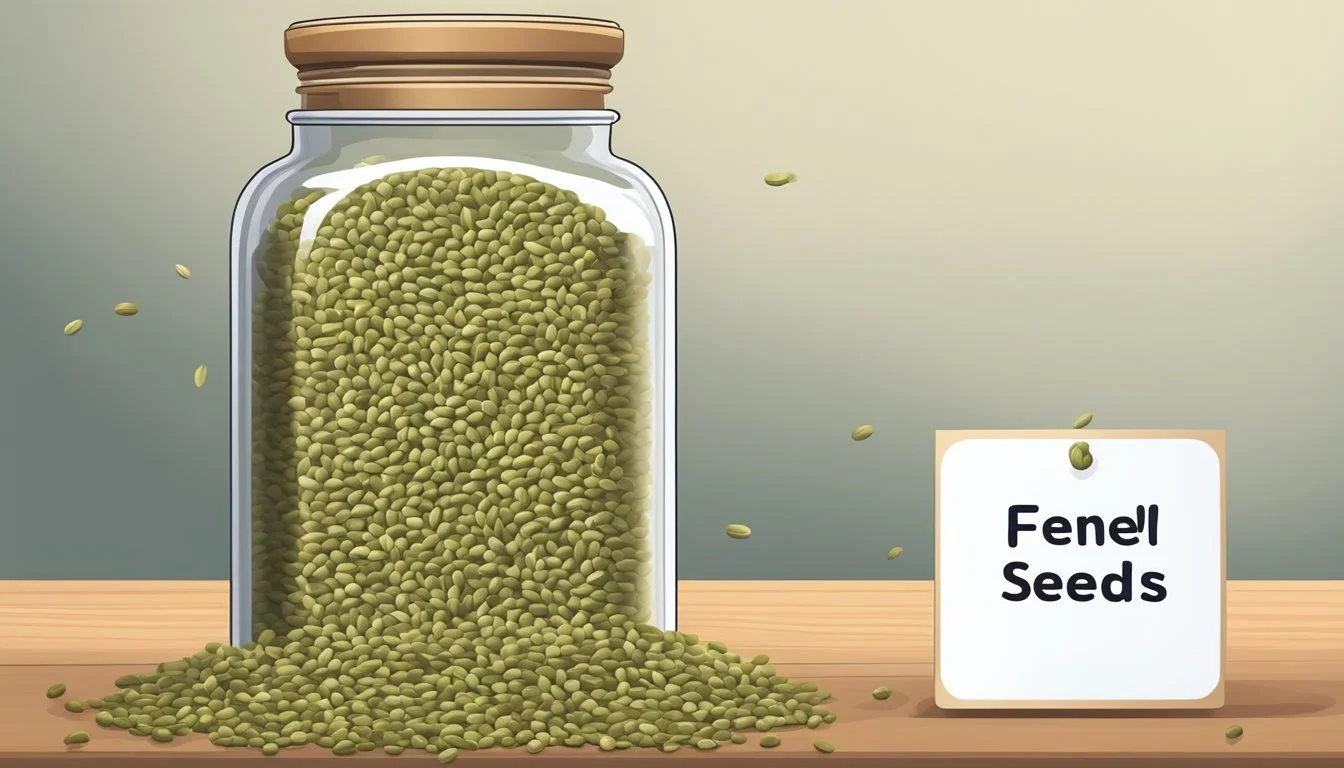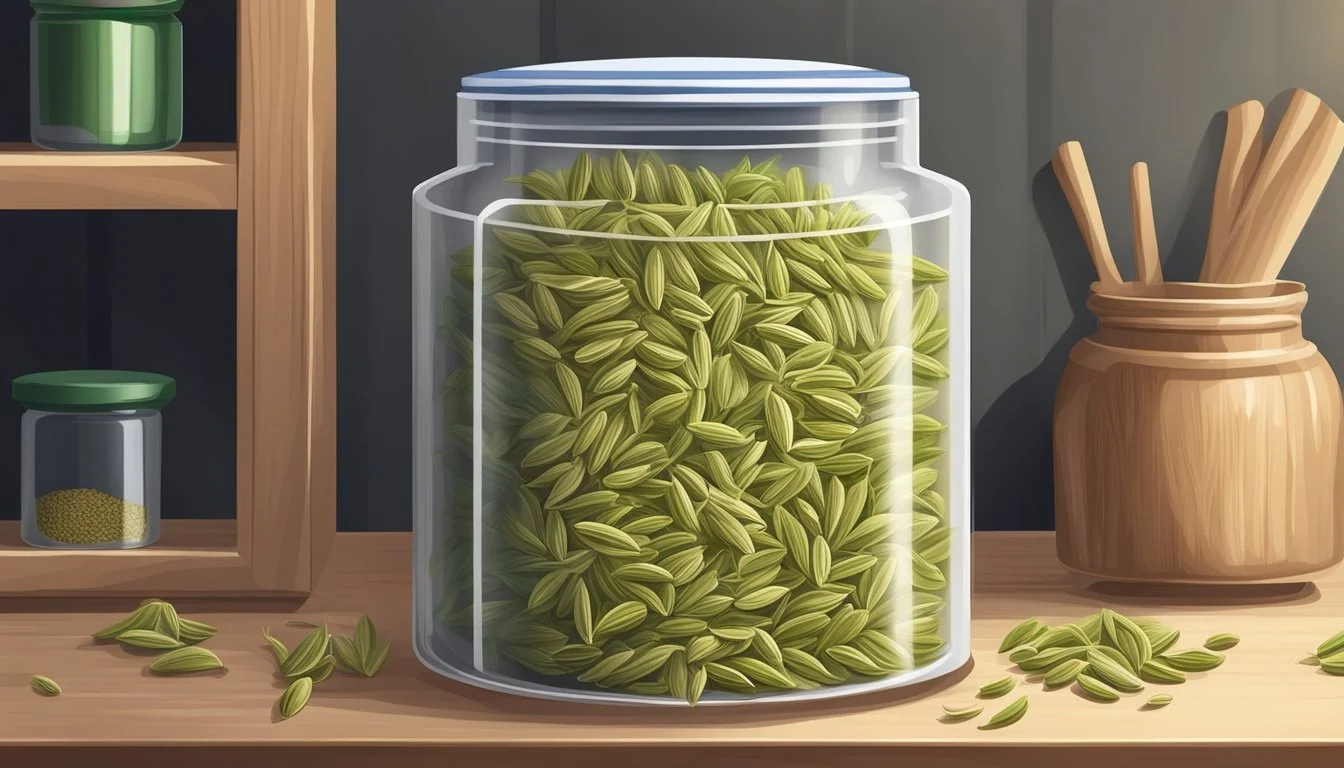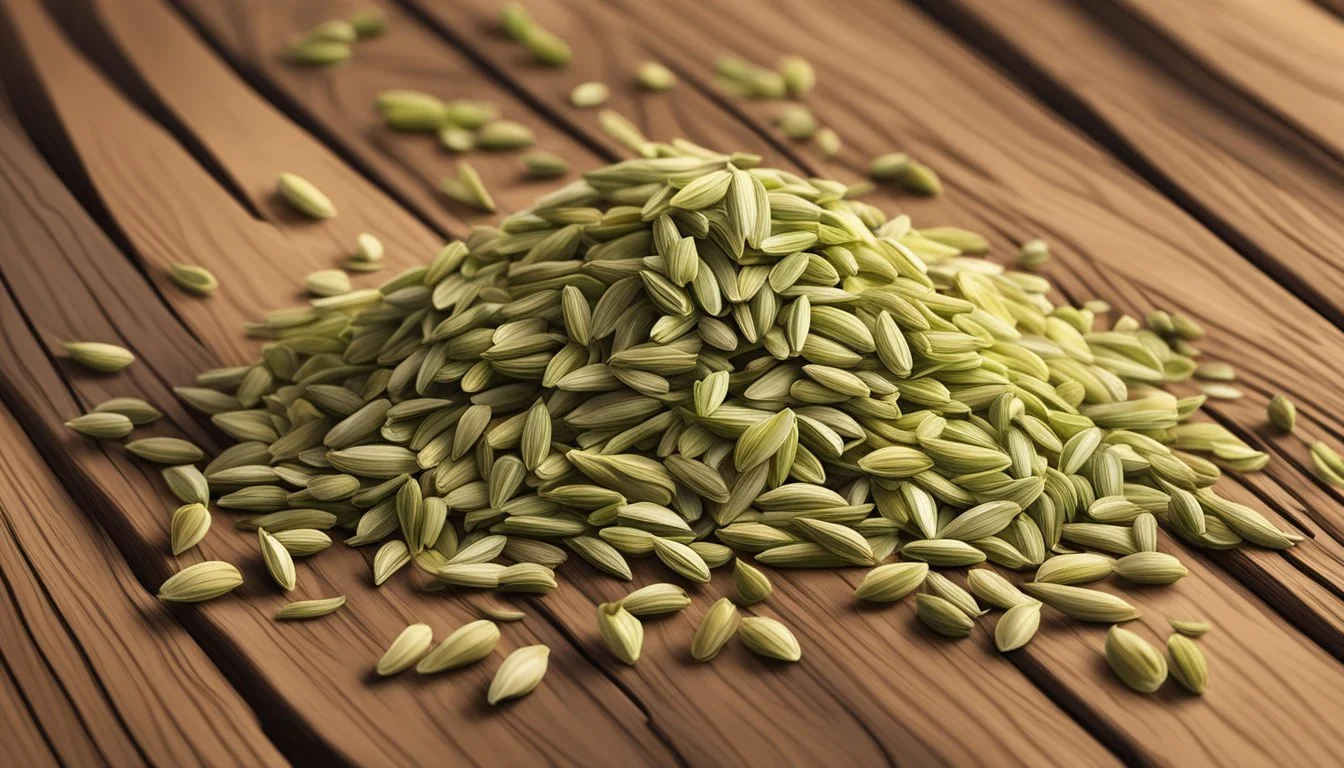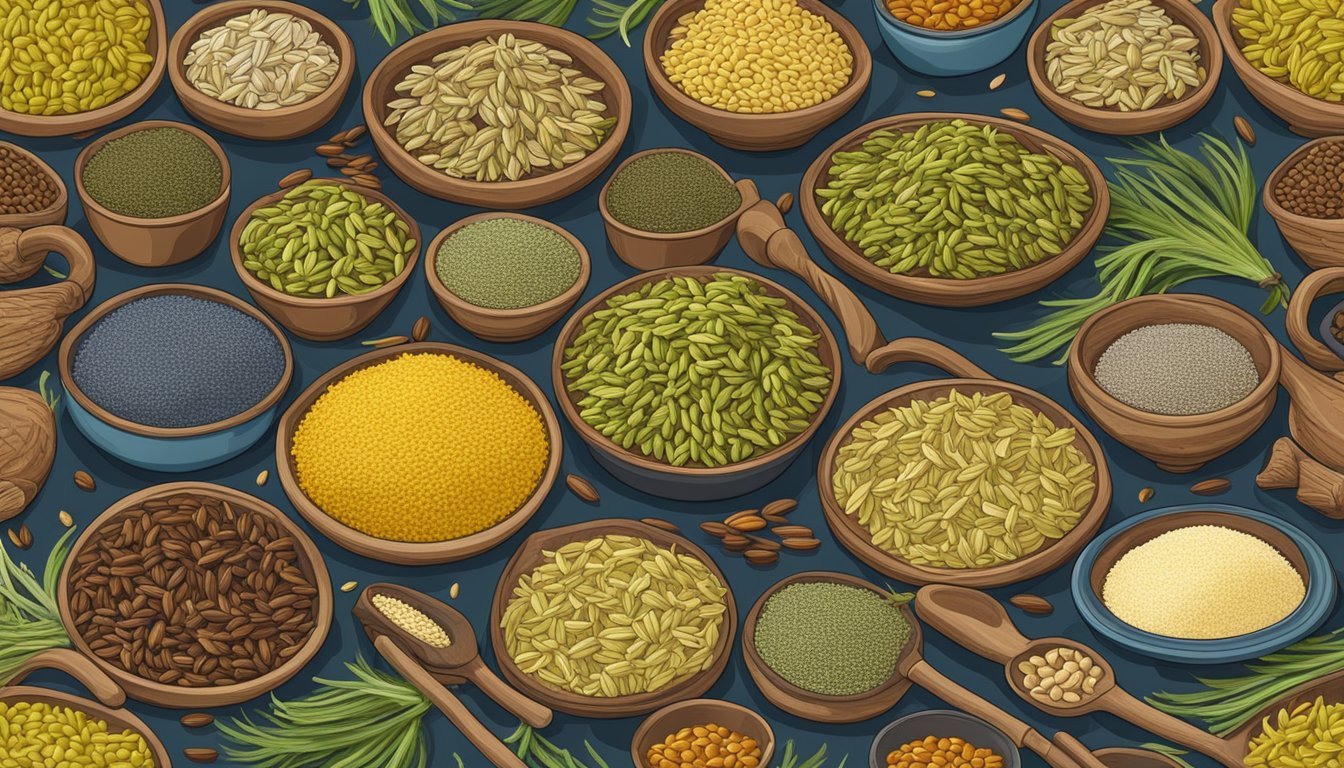Does Fennel Seeds Go Bad?
Shelf Life and Storage Tips
Fennel seeds, known for their distinctive licorice-like flavor and aroma, are a versatile spice that can enhance a variety of dishes. While many spices lose their potency over time, fennel seeds do not necessarily go bad but their quality and viability can degrade naturally. With proper storage, they can last up to four years, retaining much of their flavor and aroma.
Stored under optimal conditions, such as in a cool, dry environment, fennel seeds maintain their quality and are less likely to deteriorate quickly. The ideal temperature should be around or lower than 42°F (5.6°C), paired with low humidity to preserve their freshness. This makes them a reliable spice to keep in your pantry for an extended period.
However, it's crucial to note that like all spices, fennel seeds’ potency may start to diminish after six months. While they won't spoil in the traditional sense, their aromatic and flavor profiles can weaken. By understanding the optimal storage techniques, you can ensure your fennel seeds remain a vibrant and essential part of your culinary repertoire for as long as possible.
Fennel Seeds Overview
Fennel seeds are derived from the fennel plant (Foeniculum vulgare), commonly used in cooking and traditional medicine. These small, greenish-brown seeds have a distinct licorice-like flavor.
Fennel seeds are not only valued for their culinary uses but also for their nutritional benefits. They are rich in fiber, which aids in digestion.
In terms of vitamins and minerals, fennel seeds contain significant amounts of manganese, potassium, calcium, magnesium, iron, and vitamin C.
Key Nutrients in Fennel Seeds:
Nutrient Benefit Fiber Supports digestion Manganese Important for bone health Potassium Helps regulate fluid balance Calcium Essential for healthy bones and teeth Magnesium Involved in over 300 biochemical reactions Iron Necessary for red blood cell formation Vitamin C Boosts the immune system
Fennel seeds also possess antioxidant properties, which help combat free radicals in the body. This can be beneficial for maintaining healthy skin and hair.
Due to their potent mix of nutrients, fennel seeds are often used to support general health. They are particularly popular in Mediterranean cuisine and culture.
Proper storage of fennel seeds is crucial for maintaining their quality. They should be kept in a cool, dry place away from direct sunlight to prevent them from losing their flavor and aroma.
Culinary Uses of Fennel Seeds
Fennel seeds are versatile ingredients that enhance the flavors of various dishes. They play a significant role in seasoning, baking, and creating traditional and modern culinary delights with their distinctive sweet and anise-like flavor.
Enhancing Flavor Profiles
Fennel seeds are prized for their ability to impart a sweet, licorice-like taste to dishes.
When steeped in hot oil or broth, the seeds release volatile oils that enrich the liquid with an aromatic, slightly sweet essence. This aromatic liquid forms a flavorful base for soups and stews.
Ground or whole fennel seeds are also integral to spice blends such as curry powders, garam masala, and Chinese five-spice, adding depth to the overall flavor profile. They pair exceptionally well with pork, poultry, and seafood.
Baking and Cooking Applications
In baking, fennel seeds are a common additive to give an earthy sweetness to breads and pastries.
Italian cuisine often uses fennel seeds in bread recipes, lending a subtle licorice note and enhancing the overall flavor. When used in cooking, fennel seeds are often roasted or sautéed, releasing their fragrant oils and adding complexity to dishes such as Italian sausage and herb-crusted pork roasts.
Fennel seeds also find their place in teas, where their distinctive flavor provides a soothing experience.
Traditional Recipes and Modern Dishes
Fennel seeds have a rich history in traditional recipes, spanning various cuisines.
In Indian dishes, they are crucial to spice blends for curries and masalas. Traditional Italian sausage recipes often call for fennel seeds, as they complement the meat's richness with a balanced, aromatic sweetness.
In modern culinary practices, they continue to shine in dishes like grilled vegetables, where they provide a hint of earthiness and a punch of flavor that elevates the entire dish.
Their adaptability ensures that fennel seeds will remain a staple in both classic and contemporary kitchens, enhancing the taste and aroma of countless culinary masterpieces.
The Importance of Proper Storage
Proper storage of fennel seeds is crucial to maintaining their flavor, aroma, and germination potential. Factors such as moisture, temperature, and exposure to light can significantly affect their shelf life.
Storage Techniques to Prolong Freshness
Maintaining the integrity of fennel seeds involves specific storage techniques. Whole fennel seeds retain freshness longer than ground seeds. Here are some key methods:
Airtight Containers: Store fennel seeds in an air-tight container to protect them from moisture and air.
Cool, Dry Place: Keep the container in a cool, dark, and dry spot.
Avoid Sunlight and Heat: Store away from direct sunlight and high temperature sources.
Regular Checks: Periodically check for any signs of mold or degradation.
Factors Affecting Fennel Seed Degradation
Several elements contribute to the degradation of fennel seeds. Moisture is a primary concern, as it can lead to mold and spoilage. Temperature plays a significant role; seeds stored in warm conditions deteriorate faster.
Direct Sunlight exposes fennel seeds to UV rays, affecting their potency. Air exposure can lead to oxidation, reducing flavor and aroma. Proper packaging, such as using vacuum-sealed bags, minimizes air contact and prolongs shelf life.
Storage Conditions and Shelf Life
The shelf life of fennel seeds is directly influenced by storage conditions. In ideal conditions—cool, dry, and dark environments—whole fennel seeds can last up to 3-4 years. Ground fennel seeds have a shorter shelf life due to increased surface area exposure, generally lasting about a year.
Freezing fennel seeds is an option for extended storage but must be done correctly. Use freezer-safe, airtight containers to prevent moisture ingress. To summarize:
Storage Method Expected Shelf Life Whole, cool, dry Up to 4 years Ground, cool, dry Up to 1 year Freezing (whole) Over 4 years
Proper storage methods ensure that fennel seeds retain their freshness and potency, making them a valuable addition to various culinary applications.
Identifying the Quality of Fennel Seeds
Determining the quality of fennel seeds involves assessing their appearance, aroma, and sensory properties to ensure they haven't deteriorated. Key indicators include visual and aromatic traits, methods for testing freshness and potency, and identifying signs of spoilage.
Visual and Aromatic Indicators
High-quality fennel seeds should exhibit a vibrant greenish-brown or tan color. Seeds appearing excessively darkened, discolored, or pale may indicate spoilage or age.
The aroma of fennel seeds is another crucial quality marker. Fresh seeds emit a sweet, licorice-like scent. A faint or rancid odor suggests they are past their prime. Quality seeds should also be firm and not easily crumble when pinched.
Testing for Freshness and Potency
To test for freshness, crush a small amount of fennel seeds. Fresh seeds should release a strong, sweet, and slightly minty fragrance. Alternatively, toast a few seeds in a dry skillet over medium heat.
If they quickly emit a fragrant aroma within 1–2 minutes, they are likely fresh and potent. Lack of strong aroma upon crushing or toasting indicates diminished quality.
Signs of Deterioration
Signs of deteriorating fennel seeds include a musty or rancid smell, which signals that the oils within have gone bad. Visually, damaged seeds may appear shriveled, excessively dry, or show signs of mold.
Seeds that crumble too easily are likely old or improperly stored. Consuming such seeds might not yield the expected flavor or health benefits. Ensure storage in airtight containers in a cool, dark place to maintain quality over time.
Fennel Seeds and Health
Fennel seeds provide numerous health benefits related to digestion, heart and bone health, and anti-inflammatory properties. These benefits make fennel seeds a valuable addition to a healthy diet.
Digestive and Nutritional Benefits
Fennel seeds are rich in dietary fiber, which aids digestion and helps prevent constipation. Fiber also reduces bloating and cramps by promoting regular bowel movements.
Nutritional Content:
Vitamins: High in Vitamin C, which supports immune health.
Minerals: Contains magnesium, iron, and calcium, all crucial for various body functions.
Calories and Protein: Low in calories and offer a modest amount of protein, making them ideal for weight loss diets.
Fennel seeds also contain compounds like anethole, which have been shown to relieve symptoms of digestive disorders.
Supporting Heart and Bone Health
Fennel seeds contribute to heart health through their high potassium and magnesium content. Potassium is vital for controlling blood pressure, while magnesium supports overall cardiac function.
Bone Health:
Calcium and Vitamin K: Both nutrients are essential for maintaining strong bones and preventing fractures.
Iron: Crucial for producing hemoglobin, which helps transport oxygen throughout the body.
Including fennel seeds in one's diet can potentially reduce the risk of cardiovascular diseases and osteoporosis.
Anti-inflammatory Properties and Other Benefits
Fennel seeds possess significant anti-inflammatory properties, thanks to their high antioxidant content. Antioxidants such as flavonoids and phenolic compounds combat oxidative stress and reduce chronic inflammation.
These seeds may also offer protective effects against cancer due to their ability to neutralize harmful free radicals.
Their anti-inflammatory properties extend to alleviating symptoms of arthritis and promoting overall wellness. By incorporating fennel seeds into your diet, you can enjoy a range of health benefits that support various bodily functions.
Fennel Seeds in Cultural Contexts
Fennel seeds, or foeniculum vulgare, hold significant cultural value across various regions. They are noted for their medicinal properties, rich history in mythology, and versatile use in global cuisines.
Traditional Medicinal Uses
Fennel seeds have been traditionally used in various medicinal practices. They are known to aid in digestion, often consumed as fennel tea or chewed after meals.
These seeds contain anethole, which is believed to have antimicrobial properties. Also, fennel is used to promote lactation and address menopausal symptoms. In some cultures, it is toasted and used as a remedy for heart disease, as its compounds might help regulate blood pressure.
Fennel in Mythology and History
Historically, fennel has held a prestigious place in mythology and ancient texts. In ancient Greek and Roman mythology, fennel symbolized longevity, courage, and strength.
The Greeks associated it with Dionysus, the god of wine and revelry. Meanwhile, the Romans used it to improve vision and as an antidote to poisons. Throughout the Middle Ages, dried fennel was hung over doors to ward off evil spirits.
Global Culinary Influence
Fennel seeds are widely used in global cuisines, especially in Indian, Italian, and Middle Eastern dishes. In India, they are used as a seasoning and often toasted to enhance their flavor in spice blends like garam masala.
In Italian cuisine, fennel seeds are a common ingredient in sausages and bread. Additionally, Lebanese and Syrian recipes feature these seeds for their aromatic qualities. Fennel seeds also pair excellently with lemon and dill, adding a unique flavor to various dishes.
Whether in the form of seeds, essential oils, or extracts, fennel's cultural significance remains prominent around the world.








